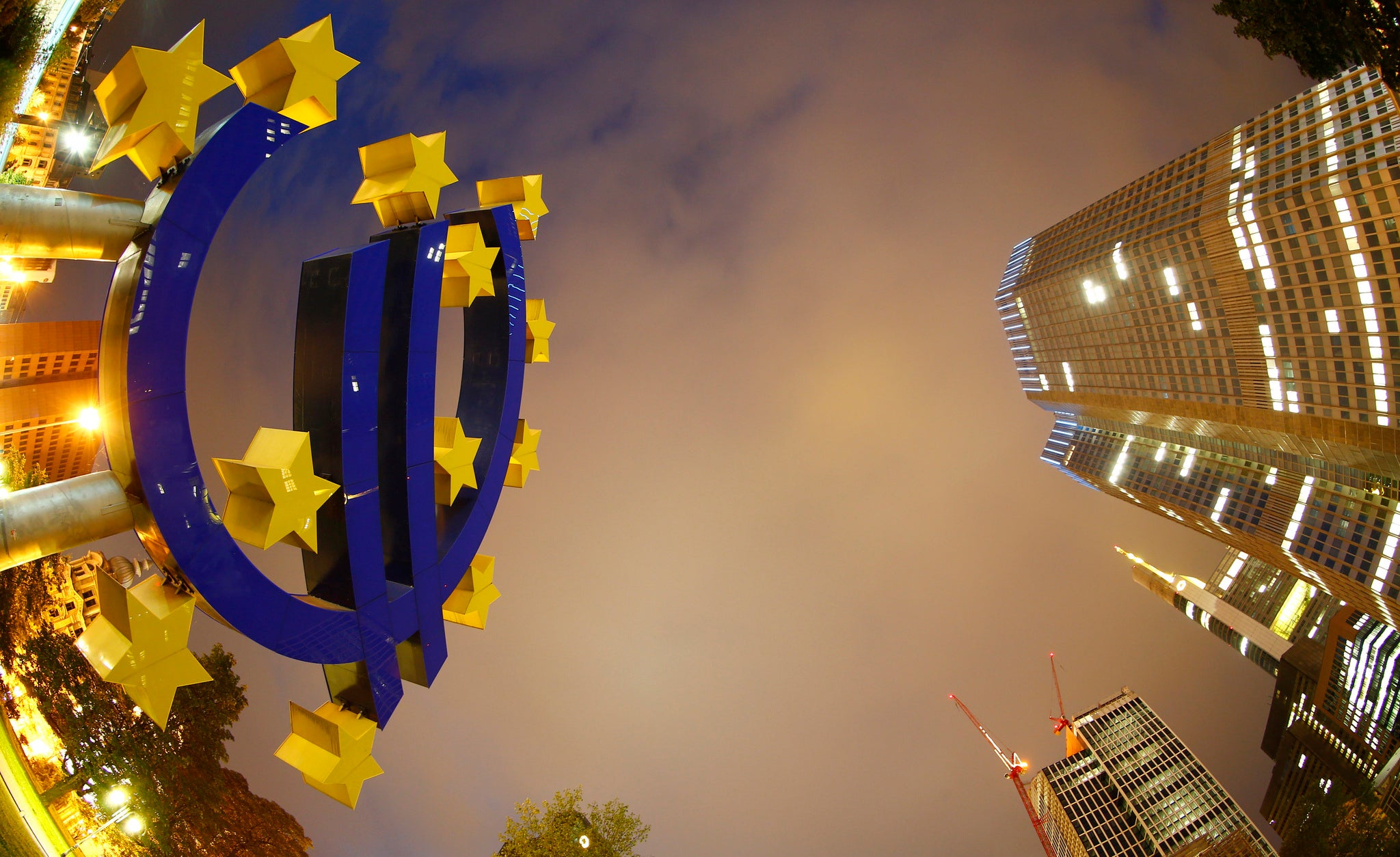Satyajit Das: Mario Draghi may as well roll the dice – we’ve tried everything else
Das Capital: It is unlikely the policies will result in an immediate return to the required levels of growth

Your support helps us to tell the story
From reproductive rights to climate change to Big Tech, The Independent is on the ground when the story is developing. Whether it's investigating the financials of Elon Musk's pro-Trump PAC or producing our latest documentary, 'The A Word', which shines a light on the American women fighting for reproductive rights, we know how important it is to parse out the facts from the messaging.
At such a critical moment in US history, we need reporters on the ground. Your donation allows us to keep sending journalists to speak to both sides of the story.
The Independent is trusted by Americans across the entire political spectrum. And unlike many other quality news outlets, we choose not to lock Americans out of our reporting and analysis with paywalls. We believe quality journalism should be available to everyone, paid for by those who can afford it.
Your support makes all the difference.Despite investor enthusiasm and strong bond and stock markets, the economic and political risks are increasing in Europe.
The actions of the European Central Bank (ECB) have reduced borrowing rates for eurozone members. While making existing high debt levels more manageable, the falling funding costs removes incentives for reducing debt and undertaking structural reforms. The Italian government proposes to use the benefit of lower rates, estimated at around €10bn (£8bn) over three years, to increase spending and relax fiscal policy.
Expectations of further falls in the credit spread of Italy, Spain and previously vulnerable peripheral nations is driving purchases of their government bonds supporting the value of the euro, at least in the short term.
A weaker euro policy may also prove problematic in the medium to long term. Falls in the euro may not trigger the hoped for rise in economic activity driven by exports. A high proportion of trade is conducted in euros within the eurozone itself, limiting the currency effect. Weak growth in export markets, such as the US and emerging countries, may limit the benefits.
The US, UK and Japanese experience suggest that monetary policy may not be able to increase inflation significantly, reflecting the effects of deleveraging by companies, households, banks and governments. Falls in the euro may increase the cost of imported products, driving higher inflation. But the erosion of real household incomes may reduce consumption, limiting any pick-up in growth.
A weaker euro entails pursuance of a “beggar-thy-neighbour” policy. Retaliation through competing monetary easing or capital controls may defeat the ECB’s efforts to weaken the currency.
Europhiles argue that pro-European mainstream parties won around 70 per cent of the parliamentary seats in the May 2014 elections for the European Parliament. Eurosceptics point to the significant gains by anti-euro and anti-European integration forces. But the real risk lies in its effect on domestic politics and complex coalitions between nations.
Italian Prime Minister Matteo Renzi’s strong showing in the elections has strengthened his position. In alliance with France, Greece and Spain, Mr Renzi is seeking a relaxation in the previously agreed programme for improving public finances and debt reduction and a new political agenda focused on growth.
The likely resolution, a typical eurozone fix, is likely to be continued support for the stability pact, requiring (for most members) an unattainable 3 per cent structural budget surplus and a debt/GDP of 60 per cent.
In reality, the ECB programme is a further tactical bluff. ECB President Mario Draghi is increasingly reliant on influencing market sentiment to buy time, in the hope that growth, inflation and some structural reforms restore the eurozone’s fortunes.
Mr Draghi’s July 2012 statement that the ECB would “do whatever it takes” helped stabilise money markets and reduced sovereign borrowing costs without requiring any actual intervention. He has continued to follow this strategy.
In December 2013, he reiterated that he was ready to consider all available instruments. In April 2014, he undertook to act swiftly if required, and he repeated this in May. Announcing the 5 June 2014 initiatives, Mr Draghi said to reporters: “Are we finished? The answer is no.”
It is unlikely that the policies in place will result in an immediate return to the required levels of growth. Inflation is likely to remain low. The ECB believes that inflation will rise to 1.4 per cent in 2016, despite downward revisions of its inflation forecast for the next three years. The pace of structural reforms in individual nations will remain slow, particularly in the face of electoral disquiet and with low borrowing costs reducing pressures for change. The ECB package of low cost funding is unlikely to have the intended effect on the real economy, though it may assist in keeping bond yields low and stock markets buoyant.
At the June press conference, Mr Draghi acknowledged that almost all the policy-makers’ conventional tools were now exhausted. With politicians having all but totally abnegated economic responsibility to monetary authorities, the ECB has only one more card left to play – a large-scale programme of asset purchases.
Should growth and inflation not increase significantly and the present policies prove ineffective, his bluff is likely to be called. He is relying on Mark Twain’s observation that “It is sound judgement to put on a bold face and play your hand for 100 times what it is worth; 49 times out of 50 nobody dares to call it, and you roll in the chips.” But as Ambrose Bierce knew, “The hardest tumble a man can take is to fall over his own bluff.”
Satyajit Das is a former banker and author of ‘Extreme Money’ and ‘Traders, Guns & Money’
Join our commenting forum
Join thought-provoking conversations, follow other Independent readers and see their replies
Comments